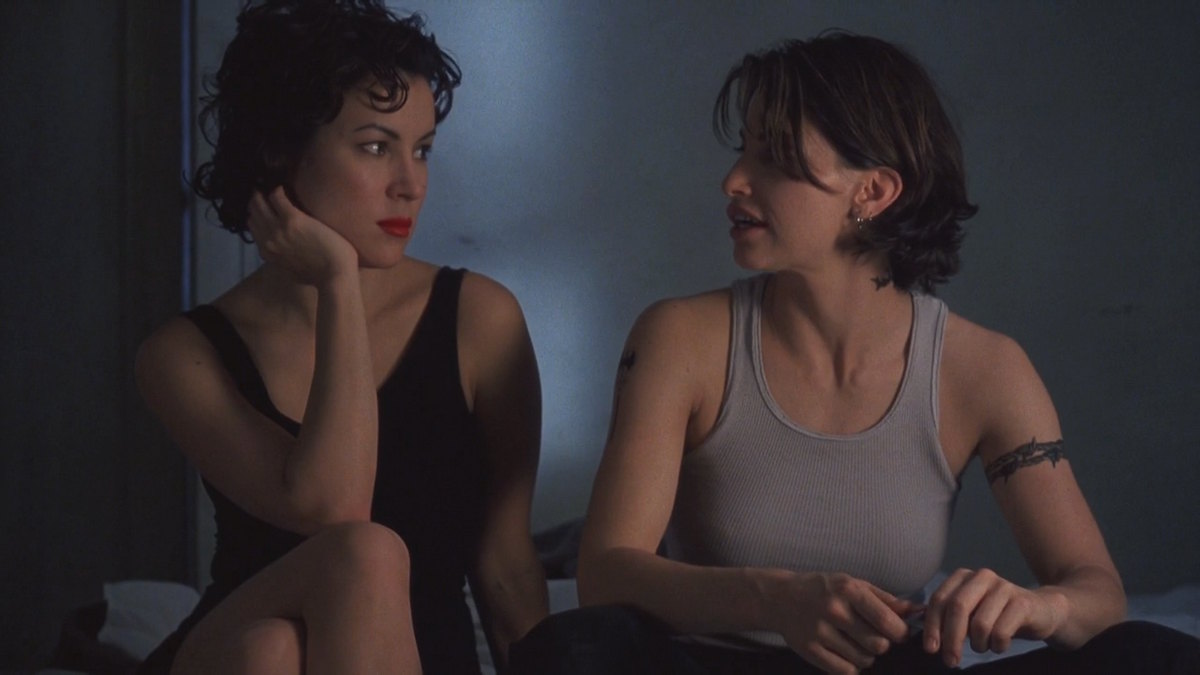After two inspiring panels that talked about empathy and representation in movies, Ebertfest commenced its first full day with screenings of three great yet wildly different films.
Any time the Alloy Orchestra plays Ebertfest, or a festival near you, go. They sound like a ragtag bunch—musicians whose instruments include saws, junk percussion, clarinet, accordion, keyboard, and typical percussion—but every time they come to town, it’s with a silent film you might have never seen, with a musical accompaniment that’s once in a lifetime. Ebertfest has made them one of the most reliable traditions of the entire festival, and it’s a special part of the program where the best seats in the house have a view of both the screen and the orchestra pit.
This year’s Alloy Orchestra performance concerned Jean Epstein’s “Cœur Fidele,” a 1923 love story that mixes elements of poetic abstraction with classic romance. Michael Phillips of the Chicago Tribune gave the Thursday afternoon at the Virginia Theatre a premier on the film and Epstein, highlighting the importance of the film theory of photogenie. Phillips concluded his mini lecture with the remark, “It’s safe to say that if Jean Epstein were a member of the Academy of Motion Picture Arts and Sciences, he wouldn’t have voted for ‘Green Book.’”
“Cœur Fidele” is simple enough with its love story, focusing on a woman named Marie who is sought after by two men of wildly different intent. There’s the romantic dockworker and wet blanket Jean, whose longing for Marie was often accompanied by a swirling waltz. But he’s up against Petite Phil, who is more brutish and possessive than his name indicates, especially when accompanied by piano bass notes and timpani, like a gorilla beating its chest. The story of “Cœur Fidele” concerns Jean trying to win her back after Petite Phil essentially claims ownership on her, while Phil becomes a drunk. Other highlights of the Alloy Orchestra score this year include how they accompanied a massive carnival scene, or created a head banging moment out of a climax where Jean and Petite Phil go to fisticuffs.
Epstein’s visual approach to the film is often stunning when he doesn’t use more straight-forward medium shots; there are also many moments in which it wallows in Petite Phil’s alcoholism, or shows Jean wistfully staring out into the water. “Cœur Fidele” is most visually memorable with its close-ups or shots that impose two images into one (like a shot of Jean and Marie embracing, as chaotic water is imposed). The film’s restoration by the Cinematheque Francaise, gave it a sharp second life.
After the film, two members of the Alloy Orchestra took the stage with Chicago Tribune critic Michael Phillips and professor Todd Rendleman. Among the many topics of their expansive and fascinating conversation, they spoke in particular about the history of Epstein’s film, finding the right tone for the music, especially for “scenes where nothing really happens,” and crafting melody and accompaniment within their three to four month composition-to-stage process.
You can watch Michael Phillips and Chaz Ebert introduce the film by clicking here; a full video of the post-screening Q&A is below:
In a type of follow-up to the morning panel about fighting addiction stigma in the arts, Ebertfest had a special screening of “Rachel Getting Married,” directed by the late Jonathan Demme.
The Q&A after the film was endemic of how Ebertfest is like a friends and family affair, as Michael Barker of Sony Pictures Classics, and Stephen Apkon, who both knew Demme personally, shared stories about the making of the film. RogerEbert.com assistant editor Nell Minow moderated the Q&A that featured reflections upon the late Demme, who put his own friends and family into “Rachel Getting Married.” But the Q&A received a special audio guest, when the screenwriter Jenny Lumet called into the Virginia Theater. She elaborated on the personal aspects of the script, and the influence of her director father, Sidney Lumet.
You can watch Michael Barker introduce the film by clicking here: a full video of the post-screening Q&A is below:
Thursday was capped with a raucous screening of the exhilarating Chicago noir “Bound,” the Wachowskis’ directorial debut back from 1996. The Virginia Theatre screened a special film print of “Bound,” which was introduced by a clip from “At the Movies,” where Roger and Gene shared their enthusiastic praise for the movie (and its stars). Gershon and Tilly have proved to be a dynamic duo during the festival, appearing throughout Champaign-Urbana, and they brought that infectious energy to the stage.
Introducing the film, Gershon said that it’s “one of my favorite movies I’ve ever done. I’m really proud of it.” And Tilly talked about the importance of Roger’s support for the movie. “He was one of the few people who really understood the movie, right off the bat,” Tilly said.
After “Bound,” the two stars each received one of Roger’s golden thumb statues. The Q&A with Tilly and Gershon was moderated by Chaz Ebert, who was joined on stage by Chicago film critics Pamela Powell and Chuck Koplinski. Gershon and Tilly talked about how they first responded to the project, the “myth of the closed set,” the homophobia within the rating system, how they view the film differently 23 years later, the 10 million dollars the Wachowskis were offered to make Gershon’s character Corky a man, and much more.
You can watch Gershon and Tilly introduce the film by clicking here; a full video of the post-screening Q&A is below:












